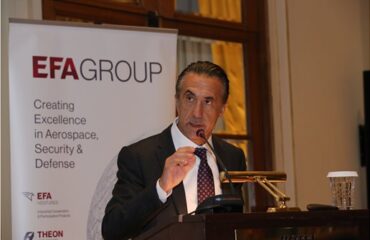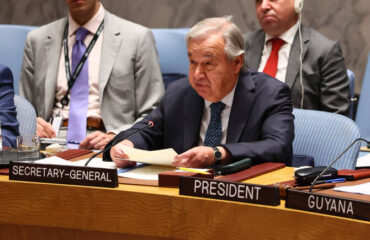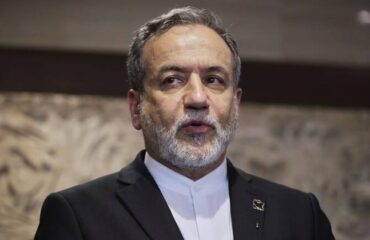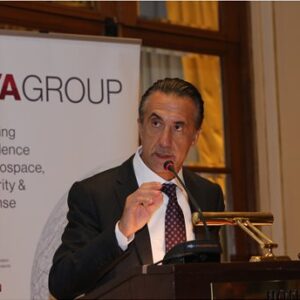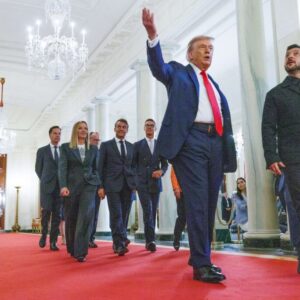State and Civil Society Security Apparatus in the Service of the General Secretariat of National Security
Diagnosis of the Current Landscape and Future Prospects from RIEAS
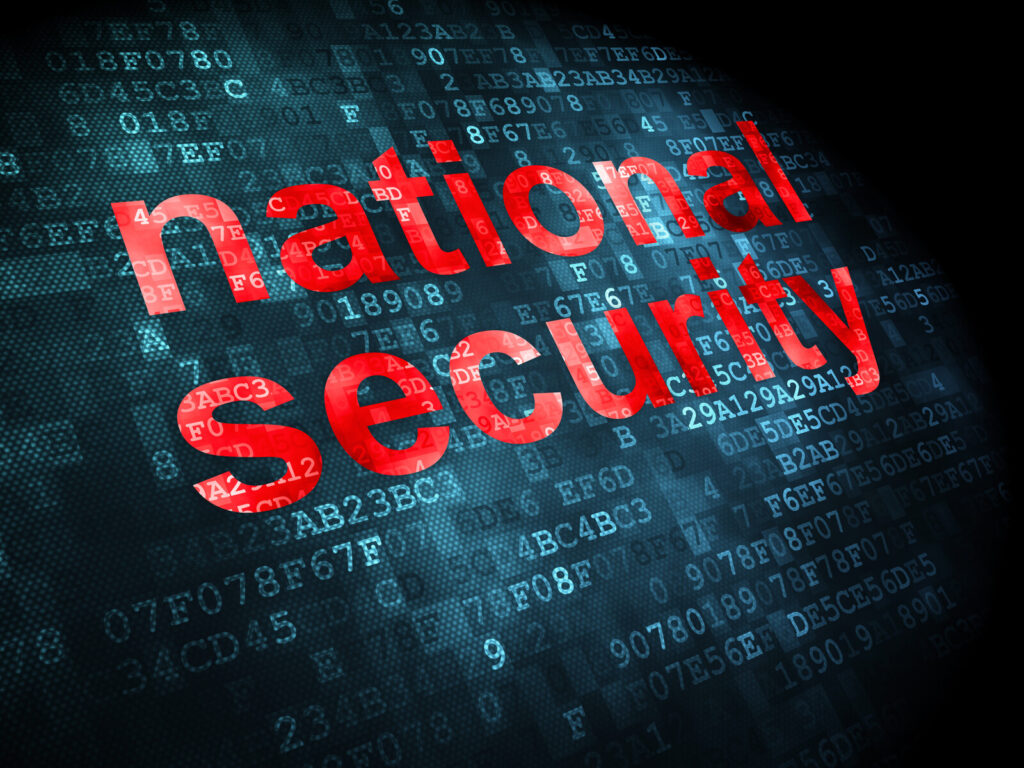
(The article was published by the Research Institute for European and American Studies (www.rieas.gr) – RIEAS.) – In the 21st century, a key concern is how private and public partners organize the sharing and utilization ofintelligence information concerning national security policiesin the transatlantic and European security and defence community.
In this policy brief that proposes a structured road-map for integrating private sector institutions into the operations and strategic planning of the new General Secretariat of National Security (GSNS). Drawing from international best practices and adapting to Greece’s particular capabilities and needs, it includes mechanisms for advisory input, strategic research, and innovation partnerships. The objective is to enhance policy foresight, analytical depth, adaptive resilience, and institutional memory in Greece’s evolving security landscape, through harnessing the analytical, technological, and strategic expertise of non- governmental actors, as well as its flexibility and out-of-the-box thinking.
The main body responsible for the planning of National Security strategy is the Government Council for NationalDefence (KYSEA)1, whose work is supported by the newly proposed General Secretariat of National Security (GSNS)2. Both bodies are answerable to the Prime Minister’s Office (PMO), which chairs the KYSEA and directs the GSNS. The former is responsible for setting a long-term strategic direction, by approving high-level national defense doctrines and postures, and for deciding on national crisis responses. It comprises of several senior ministers and enables interministerial coordination on security- related issues. The latter’s objective is to provide analytical and policy advice to the Prime Minister, through the National Security Advisor, and the KYSEA, as well as to lead the writing and updating of Greece’s National Security Strategy document.
The work of these two institutions is facilitated by the core input provided by a plethora of ministries and government agencies. The Ministry of Foreign Affairs (MFA) offers risk assessments on the diplomatic front, geopolitical analyses, and manages alliances. The Ministry of National Defence (MoD) and the Hellenic National Defence General Staff contribute in areas regarding defense policy and partnerships, procurement planning, and operational and tactical assessments. The Ministry of Civil Protection monitors law enforcement and provides input on internal stability and security. Finally, reports shared by the National Intelligence Service (EYP), the National Cybersecurity Authority (NCSA) and the Hellenic Coast Guard cover hybrid threats, like cyber threats, migration crises amongst many others.
Several think tanks, research institutes and foundations operate within Greece, and constitute a large part of the private sector side of its security apparatus. These organizations mostly focus on geopolitics and international relations, by studying and analyzing all aspects of the country’s foreign policy. The Hellenic Foundation for European & Foreign Policy (ELIAMEP) is the leading institution on European integration issues, EU policies on climate change, migration and energy, and is an active member of several international networks3. The Institute of International Relations (IDIS) and the Council for International Relations – Greece (CfIR-GR) produce high quality research, primarily, in the fields of strategic analysis, global governance, international law and foreign policy4, and domestic and regional stability, and institutional governance5, respectively. They are both affiliated with higher education institutions and try to bridge the gap between academia and practice. The Hellenic Institute for Strategic Studies (EL.I.S.M.E.), also, addresses sectors related to national strategy, international relations and geopolitics.
Finally, the Research Institute for European and American Studies (RIEAS) devotes its attention to the transatlantic partnerships, intelligence studies and analysis, terrorism, and generally matters of security, whether domestic, regional or international7.
These are just a few examples of the more notable think tanks and institutions. However, there is much dynamism and untapped potential in many other sectors of Greece’s civilsociety. Expertise in every realm related to national security can be found in individuals.
Implementation and Further Recommendations
States around the world have followed a variety of models when it comes to integrating their private sector into the national security apparatus. In the case of Greece, it seems that an ad-hoc, expertise-based consultation model, would best suit the country’s peculiarities, and serve its needs. This would allow the state to leverage specialized knowledge while maintaining confidentiality, operational control, and strategic coherence. The framework for such an arrangement shouldrest primarily on three pillars: Confidentiality and accountability, purpose-driven engagement, and primacy of the state.
The engagement of private sector actors should be organized within Strategic Consultation Cells (SCCs) — temporary, ad-hoc working groups directed by a designated GSNS officer. After the GSNS has set the specific topics and goals and upon request, a working group composed of external experts will be formed, tasked to tackle the issue at hand. For the staffing of the SCCs, a GSNS registry will bemade up of all experts and private institutions, following a vetting process of background checks and conflict-of-interest reviews. Given that all consultations must address a clearly defined strategic need or knowledge gap, the registry should include each individual’s or organization’s primary and secondary area of expertise, previous security experience, and availability, in order to streamline the selection process and enhance operational efficiency. The registry will be reviewed and updated as necessary.
The GSNS must ensure that private institutions only access information on a need-to- know basis, and use non-disclosure agreements and compartmentalized briefings to mitigate risk. A strict tiered system on access to sensitive information must be implemented, and whenever possible sanitized or open-source data should be used. To promote transparency and accountability, all engagements must be documented and subject to internal GSNS review, which would also facilitate the democratic oversight, by verifying compliance with national law and respecting parliamentary oversight structures.
Having established these guiding principles, the operating framework for utilizing expertise from the private sector is now in place. Strategic Consultation Cells will be convened, when a need for external consultation is identified during a GSNS meeting. The GSNS leadership, then, triggers the formation of a SCC, selects a small number of experts, typically 3 to 8, from the registry based on relevance, appoints a regular GSNS officer as the coordinator, and drafts a brief underlining the issue, timeline, expected deliverables, and level of confidentiality.
Experts from the private sector, within the context of the Strategic Consultation Cells, can provide analytical support by dissecting complex security issues using sector-specific data or predictive modeling. Their input is also vital for scenario development and war- gaming, particularly in constructing or evaluating plausible threat scenarios, often incorporating red-teaming exercises. Additionally, independent academics and analysts can offer critical reviews of national security strategies, white papers, and doctrinal documents. This ensures that GSNS policy remains forward-looking and informed by a diversity of perspectives. Given that such documents may contain sensitive or classified information,strict safeguards must be in place. External consultants will be provided with redacted versions or modular sections (e.g., economic dimensions, public resilience) and must adhere to GSNS information-handling protocols, which may include on-site reviews only. Think tanks with polling or media-monitoring capabilities can contribute communication and perception analysis, enabling the General Secretariat to better understand public sentiment and disinformation dynamics. Finally, private R&D laboratories and defense contractors can provide insights into emerging technologies, dual-use innovations, and foreign procurement risks. A designated GSNS officer is responsible for consolidating, interpreting, and integrating all findings into internal decision-making processes and communicating them, either to the Prime Minister’s Office, through the Director of National Security, or to the Government Council for National Defence (KYSEA).
For the engagement of the private sector to the GSNS a Chatham-style protocol to produce open, high-quality dialogue, a Chatham House-style protocol (Chatham HouseRule)8 must be adopted, meaning that participants in a meeting, in this context an SCC, are free to use the information received, but neither the identity nor the affiliation of the speaker(s), nor that of any other participant, may be revealed. In such an environment experts can speak more freely, especially when critiquing official policies or discussing politically sensitive topics, therefore reducing self-censorship. This also separates ideas from individuals, and allows the GSNS can focus on the merit of the ideas.
The plurality of input to the GSNS via the SCCs is central to this design. The external advisors included in the GSNS registry should represent a diverse set of professional backgrounds and disciplines. This diversity is essential toachieving a well-rounded, adaptive, and forward-looking security posture. First and foremost, national security nowadays spans far beyond traditional defense or intelligence. The constantly varying nature of threats faced by the modern state requires cross-sector expertise and multidisciplinary input. Secondly, it helps avoid the developing of echo chambers, which result in Groupthink9 and risk underappreciation of emerging domains and poor anticipation of second and third-effects.
Finally, showing that the GSNS listens to a range of sectors, and not just “security elites”, enhances transparency,public trust, and overall boosts democratic legitimacy. In order to manage this diversity, the GSNS must categorize registry entries by sector and primary expertise, ensure balance in each ad-hoc working group, allow cross-sector pairs and triads to co-lead assessments, and adopt a flexible method of selecting these external advisors based on the priority, relevance, and criticality of their expertise relative to the issue at hand.
This diverse group of experts, once engaged though the GSNS registry, should provide strategic, technical, and anticipatory insights that support national security decision- making in flexible, actionable, and time-sensitive ways. The value of their output lies not only in delivering information but in shaping perspective, testing assumptions, and challenging strategic blind spots. Horizon scanning reports, scenario planning, and emerging threats assessments help anticipate medium to long-term risks and opportunities, therefore providing strategic foresight and early warning. Moreover, in many instances, the SCCs will be asked to provide specialized knowledge on highly technical or evolving issues, through vulnerability reports, capabilityevaluations, and infrastructure resilience audits. Furthermore, policy and legal review by the SCCs can ensure that national security strategy remains compliant with legal norms and is informed by best practices. One of the primary tasks of the Strategic Consultation Cells is to critically test GSNS assumptions, policies, or strategies before implementation. Multidisciplinary teams with cross-sector perspective can produce briefs, adopting a “devil’s advocate” approach, or simulation-based critiques of contingency plans. Lastly,sectoral consultants and industry think tanks can illuminaterisks within specific domains of national security by running “stress simulations” and carrying out vulnerability mapping.
The nature of all output from the proposed Strategic Consultation Cells, such as white papers, risk assessments, and scenario analyses, is non-binding, and should not be public unless specifically declassified. They are internal-use products prepared for GSNS leadership and, where appropriate, briefed to KYSEA, the PM’s office, or relevant ministries (MFA, MoD etc.). Documents from SCC sessions carry the weight of plural, expert opinion from vetted professionals across academia, industry, and specialized domains, functioning as a “sanity check” for internal GSNS positions. One of the few sanctioned ways the GSNS can broaden its perspective without compromising state control is through SCC input. The outputs may be distributed internally in “For Official Use Only” format —meaning unclassified but restricted information, or as internal GSNS strategic notes or briefing summaries.
Final Thoughts
In an age of multidimensional threats and rapid change, Greece cannot afford to treat security expertise as the monopoly of the state. With the right safeguards, not limited to the ones proposed above, the integration of private-sector institutions through mechanisms like the Strategic Consultation Cells will help Greece craft more effective, adaptive, and democratically grounded national security policy.
Due to the complexity of modern security challenges, national security cannot be siloed. The private sector and non-state institution are often more agile, specialized, andglobally networked in emerging and non-traditional domains than public agencies alone. National security benefits from an ecosystem approach, not just a bureaucratic one!. Greece possesses rich pools of underutilized expertise and untapped potential and dynamism across its private sector, which often monitors emerging risks before state bodies, has more advanced technical insight into more specialized sectors, and operates closer to the markets and societal developments. At the same time, by adopting a structured, vetted, and confidential framework, the Greek state can maintain its primacy and protect classified material, while still being able to receive external insight through secure, reversible channels.
In summary, a well-governed private-public interface makes the GSNS a hub of strategic innovation, strengthens KYSEA’s ability to make informed decisions quickly and ensures continuity of insight across political cycles. Institutions evolve not just by reacting to crises, but by building anticipatory capacity.





